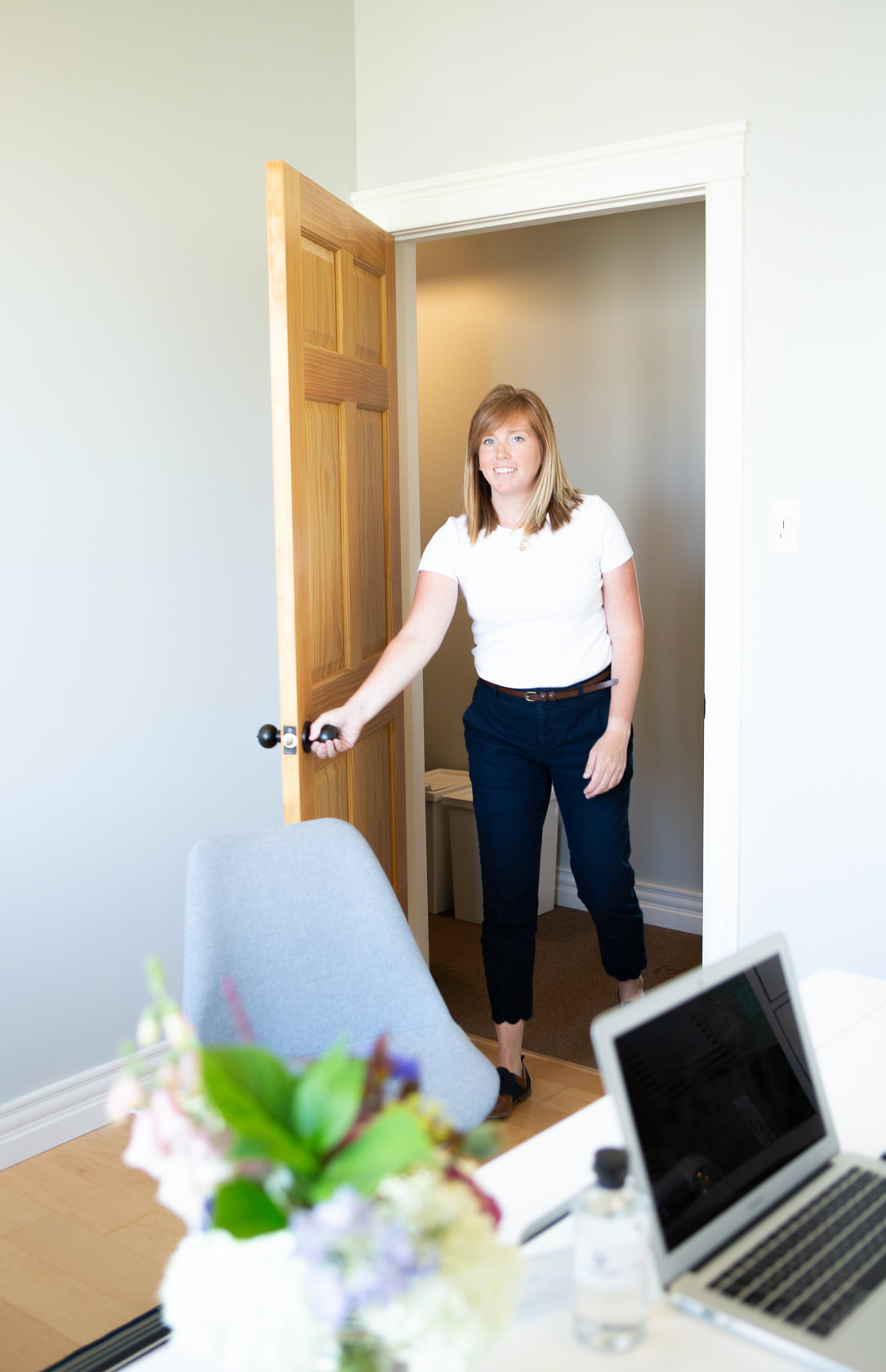JENNIFER HALEY, CPAHi there, I'm Jennifer Haley, CPA. I'm here to help business owners get a handle on their finances so they can get back to doing the things they love. Categories
All
Archives
January 2022
|
Back to Blog
BUSINESS BANK ACCOUNT11/3/2020 The only advice you will EVER need when starting or running your business is you MUST open a bank account that is completely designated for business; and separate from your personal account!
I mean if you want to get me going, I’d actually suggest to open at minimum 4 accounts, but I'll get to that on another post, and 1 is a VERY positive start! I see a lot of people running their business and personal finances through one account, and trust me, it just doesn’t work! You cannot properly manage your cashflow and the success of your business if you are needing to dodge around grocery, entertainment, medical, and all other personal expenses. Cashflow Cashflow is an essential part of our businesses, its honestly the blood line. So when you have business and personal all mixed together you will properly often need to go for transfusions (see what I did there...). When it is together, how do you know when you buy groceries you are taking away from the cash to pay for you business insurance, or when you buy office supplies are you taking away from your mortgage payment? You will always feel financially overwhelmed and stressed because you will be relying on that brain of yours to keep track of everything happening. I don't know about you but just no thanks! Canada Revenue Agency And if the cashflow reasoning wasn't enough, CRA headache should be all you need. If you are selected for an audit and CRA asks for your bank statements (and they will) they are going to make you categorize each expense within your account to state if it is personal or business. And then when there is an expense that crosses over (for instances Home Depot) you bet they are going to ask for the receipt. How much easier would it be to hand over a statement and say, EVERYTHING is business, done, no more explanation. You really need to trust me on this one, separate those funds! It will save yourself SO much hair; it won't be falling out from stress and your won't be pulling it out because you are confused and there is so much going on. Jennifer H. Xo
1 Comment
Read More
Back to Blog
BE OPEN ABOUT MONEY10/27/2020 How many times have you heard, "Shhh...you shouldn't tell people about your financial situation!"
WHY? Like seriously, why is/was this ever a thing? Because of this statement a lot of us find ourselves out for dinner with friends ordering just a small appetizer because "we had a big lunch," or we find ourselves buying Christmas gifts outside of our budget because, "Well that is what they will be spending on me." And this is NOT about telling people you can't "afford" it or you are too "poor," this is negative money thoughts. It's about letting your friends in on your financial goals and priorities. Once you start talking about your financial goals and priorities I promise your friends and family will be on your side! And I bet they will even start their own! Now you're saying, "okay Jenn, this all seems great, but bringing it up it intimidating and nerve wracking!" Here are a few suggestions on how you can bring your finances into the conversation in a natural way:
The important part is that you stay positive! Talk about your priorities and goals, and the more you talk about these the more you are keeping yourself accountable. When you let your friends and family know about your goals and priorities, they will understand your decisions and will also motivate you to reach these goals! I know you can do it!! Jennifer H. Xo
Back to Blog
MILEAGE LOG10/20/2020 Explicit Content Warning ⛔️ Mileage Log - Create and Maintain one!
. Let me guess, your accountant or business advisor has told you that you need to have and manage a vehicle mileage log for tax time. But the end of year is coming and all you have is a blank page of paper 🗒️...did I catch you? I’m here to help you through the process and provide some insight and tips on how to manage it. The Canada Reveune Agency (CRA) provides 2 different methods for maintaining your mileage logbook:
The full logbook is what you would expect, keeping track of all of your mileage for the year, each and every year. The simplified logbook however allows you to maintain a logbook for a period of 1 year which establishes a base year. Each year going forward you are only required to maintain a logbook for a period of 3 months and as long as it is within a range of 10% from your base year, you are then able to use your base rate as your multiplier. I know, it doesn't sound simplified, but let me break it out in an example: Mike's Carpentry managed its log and determined it drove a total of 1,000kms in year 1; 200kms were related to personal use. Therefore 80% was business related and 20% was personal. In year 2, Mike's Carpentry kept a log for only 3 months and determined in those 3 months it drove 400kms and 72kms were related to personal use. Therefore 82% is business related and 18% is personal. Mike's Carpentry's base log and 3 month sample is within a 2% range and therefore Mike's Carpentry can use the rate of 80% against all vehicle expenses for year 2 and no longer needs to manage a log. The simplified method can be very beneficial if you typically travel the same each year. If your travel can fluctuate or you like to just get in the habit of maintaining your log each year here are a few tips you can use to help you:
Mileage logs can be on our side, we just need to utilize the tools available to us, like apps and Google maps :) Jennifer H. Xo
Back to Blog
MONEY POSITIVITY10/13/2020 Have you ever said, “I’m bad with money?” The amount of times I have heard this statement is ONE too many times! I need you to immediately remove this statement from your vocabulary, like NOW! We have learned that negative self talk is bad for our mental health. Finances are also a part of our mental health and by using this statement we are participating in negative self talk. Positive thoughts create positive results 💸 Did you know that:
But how do we get out of this? We start with goals and POSITIVE THOUGHTS and talk about money. We know if we are serious about accomplishing something, we don't talk negatively about it, we "pump" ourselves up, we get excited, and we tell ourselves we CAN DO IT. Money should be no different! If you want to start taking control of your finances and increasing your mental wellbeing, you MUST start with a positive attitude amount your money and situation.
You will be surprised how quickly your financial situation will improve when you create positive thoughts about it! (1) Financial Planning Standards Council, “OMNI REPORT: Financial Stress,” 2018.
(2) https://www.canada.ca/en/financial-consumer-agency/services/financial-wellness-work/stress-impacts.html
Back to Blog
THE $30,000 RULE10/6/2020 There is always confusion on whether a business needs to set up a GST/HST account. Just because your business is earning money, it doesn’t necessarily mean that you need to set up a GST/HST account with Canada Revenue Agency (CRA). If your business does charge GST/HST to its customers on services/products sold, the business is required to remit these funds to the CRA. You will also be eligible to claim the GST/HST your business pays on business related expenses, these are called input tax credits (ITCs). The $30,000 Rule This rule is often the beginning of the confusion. If your business makes less than $30,000 in a total of 4 consecutive calendar quarters, you are considered a small supplier and are not required to open a GST/HST account. You would not charge this GST/HST to your customers. Once your business makes revenue of $30,000 in 4 consecutive calendar quarters or less you are no longer considered a small supplier and are required to open your GST/HST account and begin charging GST/HST to your customers. Here are the three scenarios that are most common and help you understand when you are no longer considered a small suppler and must open a GST/HST account. See the scenarios in the below table to determine if you are a small supplier:
Other Reasons to Register for a GST/HST Account
Even if you have not reached the $30,000 threshold there are still other reasons you may want to register for an account:
I hope this was of help to you. Let me know if you have any questions. Jennifer H. Xo
Back to Blog
FINANCIAL AWARENESS9/29/2020 Financial Awareness 💭 ✔️
Set a reminder each week and take 15 minutes to check in on your bank accounts, credit cards, and loans. Just the act of being aware of your money and what you have will help you make smart money decisions as you move through the next week. It also allows you to pick out any bad spending trends that may be starting to form (you know, unnecessary dollar store trips, or breakfast every morning because you forgot to hit the grocery store). Once you check in with you accounts you can realign with your goals and be prepared to take on the new week. Let me know when you are going to schedule your weekly check in 👇 During Sunday morning coffee, Monday morning at work, or Friday night as you wind down from the week.
Back to Blog
INTENTIONAL SPENDING9/15/2020 Intentional Spending is the MOST important tip I can give!
Did you know that if you skip your weekly coffee and invest that money in your TFSA you could have $21,000 in 25 years! Or if you put that money on your credit card you will make a total extra payment of $285 within a year. You're thinking, "Jenn yes my parents have always told me to cut out 'dining out' and I will be able to save for retirement. But I still don't listen to them because I like having fun!" My response....Yup, stripping yourself of your enjoyment will not save you money! This tip isn't about physically putting that coffee money in a jar, it's about being intentional in how you spend your money. Raise your hand if you are like me, buy 3 beer at the brewery when 2 would have sufficed 🙋♀ (local breweries/coffee shops, I love you! Trying to make sure your customers have money to continue to spend with you long term!) Instead shift your mindset, is the money I'm about to spend worth it, worth messing with your retirement plan, or your travel savings? For the next week (at minimum) when you spend money ask yourself, can I scale this back, am I actually going to enjoy this purchase or am I just doing it to do it? Is this purchase worth risking my goals? Let me know below how much you save in a week asking yourself these questions 👇
Back to Blog
FINANCIAL GOAL SETTING9/1/2020 🌟 Today's money matters tip is all about financial goal setting 😆
Okay, stay with me here...I bet a lot of you have already started to gloss over or even thought that first sentence was a little cringey. But TRUST me, goal setting is SO important in getting your finances in order. Throughout the next months I am going to provide you with a lot of fun tips around saving and spending; without having any goals set, most of these tips will fall short. Goal setting doesn't need to be this big thing. I am just asking you to take a few minutes, think about a few financial goals you'd like to reach and write them down on a piece of paper. Tuck that piece of paper in your wallet or a safe place where you can check back in on it. Make these goals realistic, attainable and exciting. Do not make your first goal to save $1.5M for retirement 😴 My first financial goal was to pay off $5,000 of debt in one year. That is it! Here are some examples: ✔️ Save $1,300 for a vacation next year ✔️ Invest $50/month for my retirement ✔️ Pay $2,000 off my credit card in the next year. Now get goal setting and let me know what ones you come up with!
Back to Blog
A FRESH START8/19/2020
|



 RSS Feed
RSS Feed
